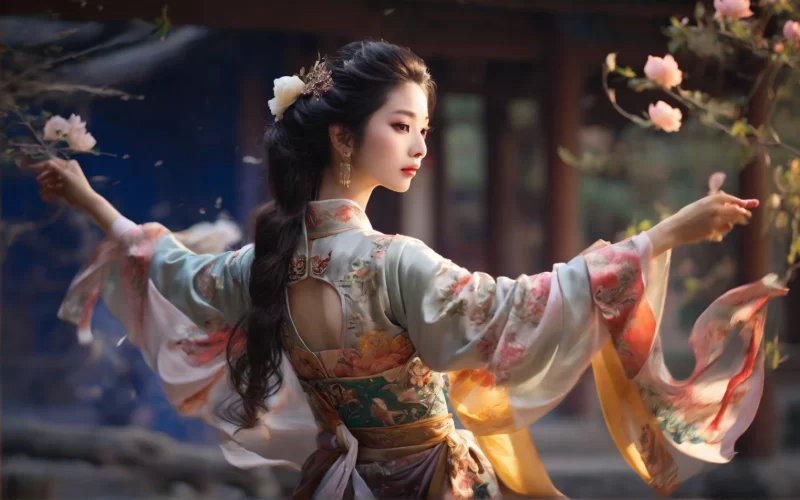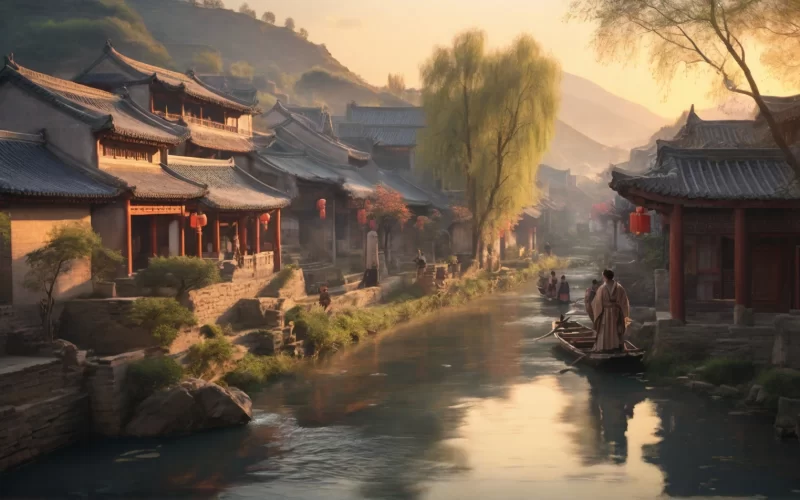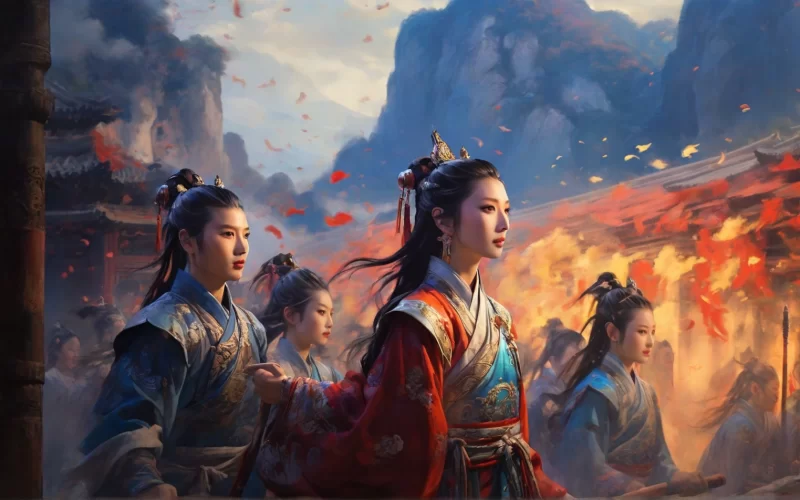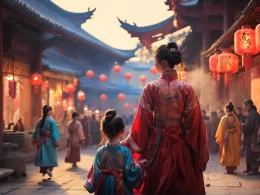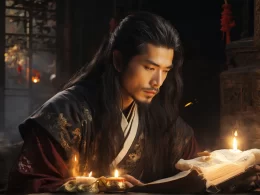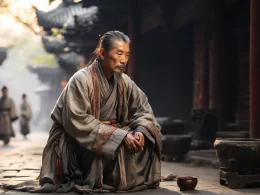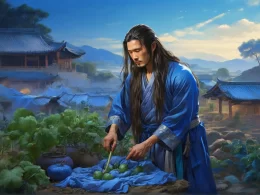Idiom Explanation:
Originally, it means that the portrait has been repainted with a new face. Later, it refers to opening up a new situation or creating a new style or pattern.
Pronunciation:
别开生面
yīn yē fèi shí
Origin:
唐·杜甫《丹青引赠曹将军霸》:“凌烟功臣少颜色,将军下笔开生面。”
Story:
Cao Ba, a famous painter in the Tang Dynasty of China, was good at painting figures and horses. His fame spread to the capital Chang'an, and even Emperor Tang Xuanzong, who lived deep in the palace, knew about him. Emperor Xuanzong often summoned him to Xingqing Palace and ordered him to paint on the spot, and gave him generous rewards from time to time.
As Cao Ba was favored by the emperor, all the princes and nobles and official families in Chang'an city were proud to have his paintings in their collections. They were willing to buy his ink at a very high price. In the Taiji Palace in the north of Chang'an, there is a famous Ling Yan Ge. The four walls of the pavilion are painted with the portraits of twenty-four founding officials of the Tang Dynasty. These portraits were painted by Yan Zhiben, a famous painter, more than seventy years ago. Due to the age, the original lifelike portraits of ministers, now most of them have peeled off, not only lost the style of the year, some even illegible. For this reason, Emperor Xuanzong summoned Cao Ba and asked him to repaint them.
It was not easy to redraw the portraits of the ministers. Cao Ba read a lot of historical materials, pondered carefully against the faded and blurred portraits of meritorious ministers, conceived carefully, and then drew with his brush. Soon, the portraits of the twenty-four ministers were restored to their glory and shown in a new style.
Cao Ba was good at painting both figures and horses. Once, Emperor Xuanzong summoned Cao Ba to the palace and asked him to bring his favorite horse, a famous horse called cōng, and ordered Cao Ba to paint it. Cao Ba asked his attendants to frame a huge white silk on the wall of the palace, while observing the buckskin for a long time, then turned around and wielded his ink brush quickly. Not long, the mighty buckskin on the white silk. The more Xuanzong looked at it, the more satisfied he was, and immediately asked his attendants to fetch a lot of gold and silk to reward Cao Ba, and made him the general of the left military guard.
But the good times did not last long, after the appointment of Li Linfu, Yang Guozhong and other powerful ministers, Xuanzong loved sex, extravagant and lascivious, and ignored political affairs for a long time, Cao Ba was less and less called to paint. He was later removed from his post and demoted to a commoner because of a work that was suspected of insinuating the Tang Dynasty, and had to leave Chang'an.
In 755 A.D., An Lushan and Shi Siming started a rebellion and Xuanzong fled to Sichuan. Cao Ba was also displaced to Chengdu and lived on the streets painting portraits for passers-by.
Once, the famous poet Du Fu came to Chengdu and saw Cao Ba's painting "Nine Horses" at his friend's house, and learned that the famous painter was also in Chengdu. After a few inquiries, he finally found Cao Ba on the street. After learning about Cao Ba's life and his experiences, Du Fu was so sympathetic and emotional that he wrote a poem to him with these two lines: “凌烟功臣少颜色,将军下笔开生面。”, means "The painting of the meritorious minister in the Lingyin Pavilion has faded in color over the years, but General Cao has repainted it with your brush and created a new face."
These two lines of the poem mean: the statues of meritorious subjects in the Lingyin Pavilion have lost their former vivid and dazzling color, thanks to the pen of your General Zuo Wuwei to make them regain their luster.
Similar Idioms:
- 别具一格






